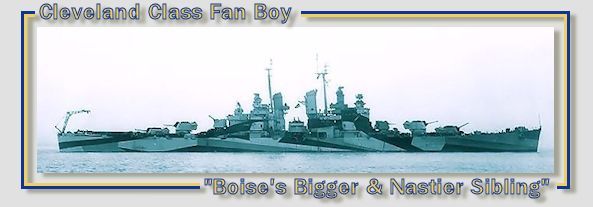Charles2222
Posts: 3993
Joined: 3/12/2001
Status: offline

|
quote:
ORIGINAL: Mike Scholl
quote:
ORIGINAL: Charles_22
Careful Mike. I presume trollelite has proved himself to be in your disfavor early on, but I don't have that as a benefit or problem. His logonid certainly isn't indicative of unbiased reason, though the post you are criticizing, in my estimates, is very untroll-like indeed. He actually sounded like he knew what he was talking about to me, even if it is mere opinion. I wouldn't expect anything other than opinion, even if it is very well reasoned from such an enormous analysis; I certainly wouldn't attempt it. You will also notice where he states the game is "becoming" meaningless. Yes, that's EOY of '45. Actually rupd offers no such successful counter-claim, as rupd's game is still in EOY '44. Will it still be of much meaning EOY '45?
I was being carefull. When DD696 offered us his viewpoint on "PBEM's not going the distance" he at least backed it up with a statistical analysis of the AAR reports to support his claim. TROLLELITE has simply provided us with his "assertions" on the relative strengths of the Japanese and the Allies. I can "assert" that the Sun will rise in the West tomorrow..., but that doesn't make it so.
And I thought RUPD's counterpoint was valid. TROLLELITE seems to think that the game is over when the Allies start becoming stronger..., and RUPD was saying he was still having a good time in 1944. TROLLELITE's view comes across as one of "The Allies have gotten too strong for me to beat on..., so let's quit and start over". He even states it himself "Most Japs players simply quit after those months. A matter of fact." That may be a truth, but it's a sad one. Why should anyone want to play the Allies in that case? Get "beat on" until you can finally halt Japanese Expansion..., then hear "I've had my fun---I quit. Oh, and this game is unbalanced in your favor."
I definitely see opposing the notion that it's good to quit when you're not is the superior position, to simplify the argument. As well, I don't see how he need make some statistical analysis. If I had done that, would you respond the same way? I often go what I call feel or rythmn in this game, perhaps he does too, no matter anything else that may occur. I think his broad analysis is fairly accurate, though I think his '45 one is inaccurate, that is if you're only taking the allies into account, because there's no way anybody in war goes from 1000% to 2000% in 6 months to a year, but then if IJ is hit pretty hard, and the allies are still ramping up strongly, it can get very bad, especially since some of the wiped out units at the very end for IJ won't be able to come back.
Despite what trollelite has stated elsewhere, and I don't follow him to know, his post is quite conservative other than the huge force increase in late '45. He only states that it is accurate to assume that playing IJ in '45 is 'becoming' meaningless. Perhaps he reached that viewpoint, no only because it's accurate ingame, but also because one normerly plays games to have some hope to win, and like I've already known about the war in the Pacific, nevermind this game, it's a VERY lopsided arena to have much of any fascination with entertaining the idea that one side had a chance. At least in East Front campaign games Gerry and Rusky often ebb and flow between having advantages, and both can win for quite a while.
So why is it so difficult to accept the idea that the game is largely lost for IJ when it starts? And trollelite didn't even make that assumption here, though he may had elsewhere. Perhaps he thinks he's playing a wargame he knows little about, to where he dreams he has a chance? In any case, he is quite correct that the game is historically so one-sided late, as it should be, unless IJ was just perfect in virtually everything, that there's little meaning left for the IJ player except to be a punching bag, and, if what I heard about the kamikazes is true, they won't even come close to their historical effectiveness. And don't forget the abombs either.
Now you can equate the early allied disadvantage to the later IJ disadvantage, but you're forgetting something, or, you have never played IJ, or intend to. That is, when the allies are doing poorly they have hope to get stronger. When IJ starts losing it, there's no hope anymore, especially 45ish. That's just the way it is. Every city can get nuked to the stone age, your forces aren't growing and they're probably rapidly declining; the USSR enters the fray, etc. What's the point in playing when you no longer have countermeasures to 20 CV's or more and cannot defend any airspace? Wow putting two divisions on some atoll and seeing how long they hold out, that must be worlds of fun. Now I'm making a stronger point than he did, which is part of my whole original point, that you are over-emphasizing what was a very minor portion of that post. You would be quite spot on if he made the funeral march for IJ in '43 , but he didn't do that. So, if you require some bloated statistical analysis to not think him an utter turnip head, where is you statistical counterpoint? I'm not really trying to come down on you Mike, I would like you to just see how your past experience with him is clouding your perception of what otherwise is a good post on his part in this case, even if he dare not get as statistical as someone else.
For all those IJ players who quit too early, is it even remotely possible that the allied plpayer was also throwing everything unhistorically into the front because he could? See what kind of allied player reaction you get when an IJ player does the same thing? Yes, though the allies will get stronger, they quit, because the IJ player is being too ahistoric and gamey. Even there, it is somewhat of a different situation. The allies know they aren't going to lose anything in the situation of their gamey over-powerful attack late, but for IJ it may often be the only way to build enough advantage to offset somewhat the later disadvantages. As the allies though, it should feel pretty dumb to leave some CV's or armies back home doing nothing when you know IJ can't do anything anyway. I would suggest that both sides alwasy kept soemthign at home, no matter the perceived advanatge, simply because they dont' know everything we know in this game. they had no idea how many allied troops would be raised on US invasion, nor if the populace would insurrect or what not. No idea of the kamikazes or how much divisions either side would raise.
|
 Printable Version
Printable Version









 vanished... but he still plays on someone else...
vanished... but he still plays on someone else...
 To bad it didn't work out that way in real life for Japan.
To bad it didn't work out that way in real life for Japan. 



 lol, wonna make a bet about 10.000 Euro about a game ... stock ... that you wonīt kill me at all when I play the Japanese side... I asure you it would be the opposite...
lol, wonna make a bet about 10.000 Euro about a game ... stock ... that you wonīt kill me at all when I play the Japanese side... I asure you it would be the opposite... 





 New Messages
New Messages No New Messages
No New Messages Hot Topic w/ New Messages
Hot Topic w/ New Messages Hot Topic w/o New Messages
Hot Topic w/o New Messages Locked w/ New Messages
Locked w/ New Messages Locked w/o New Messages
Locked w/o New Messages Post New Thread
Post New Thread